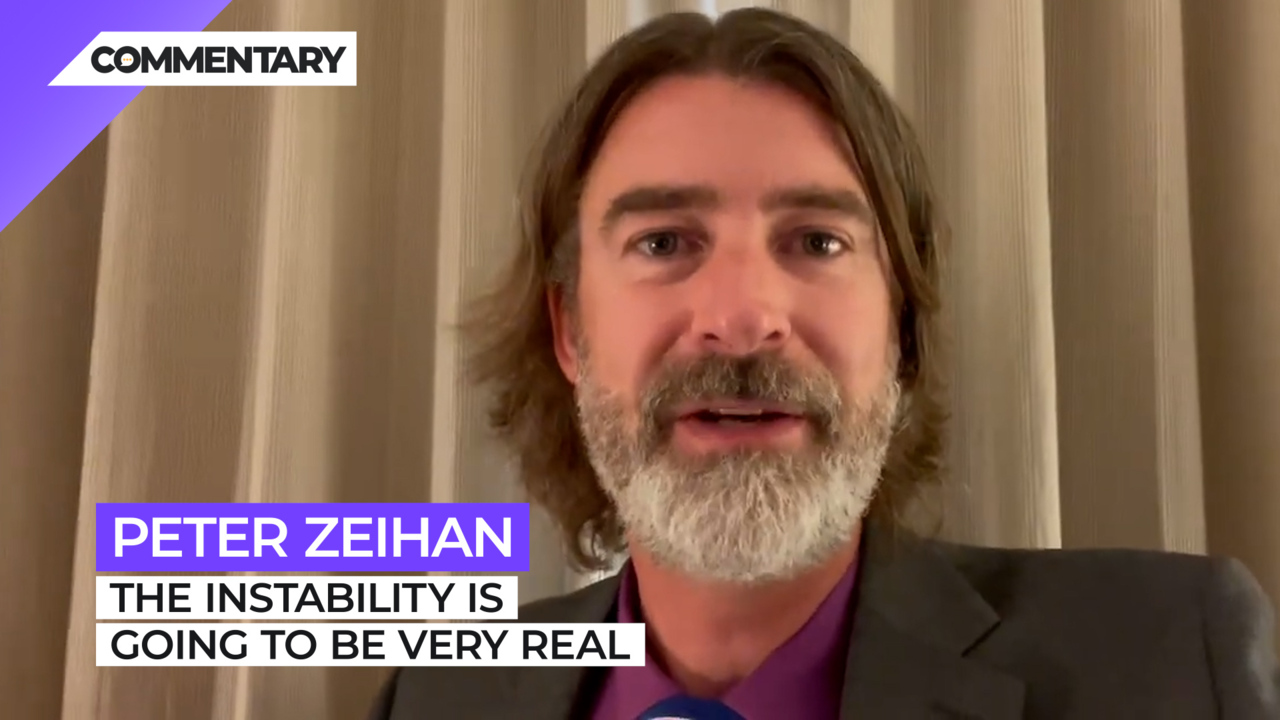
Commentary
-
Our commentary partners will help you reach your own conclusions on complex topics.
Everybody, Peter Zion here coming to you from where am I California? I believe it is October 3rd. Is it October 3rd? God I hope so.
Anyway, we just got election results in from Brazil and the situation is they do a two rounder, you have to get 50% in order to avoid a runoff and no one got 50%. So we’re now going to have a runoff later this month between the front runner Lula, who is of the center left and the incumbent, Bolsanaro of the center right – although I guess calling center-left, center-right puts it in American terms, and Brazil is absolutely its own thing.
Left and right. Let’s just work with that. Now the issue, see everyone thought it was going to be a blowout and that Lula was probably gonna get a first round win or at a minimum, just bury Bolsonaro that there was no chance of having any serious runoff. But that did not happen. Lulu only got 48%. Bolsanaro got 43%. So all of a sudden, Bolsonaro and his supporters have a very legitimate reason to think that they might win in the runoff.
Now this is weird and problematic. Bolsanaro loves to say that the elections are rigged against him, and that any election that he’s ever lost is because of some sort of corruption. Sound familiar to anyone?
As a result of the runoff, it’s going to be interesting, the instability is going to be very real. For those of you who are not familiar with the Brazilian situation, in many ways, it’s a little similar to the United States in the way that it’s set up. It’s a confederal to federal system where power is shared between the municipalities and the states, and then the states and the federal government.
And there is a lot of wiggle room as to who controls what in what particular area. And in areas where local governments fail, the federal government steps in in areas where the federal government fails, sometimes localities step up.
And the result from a legal point of view is real mishmash. So it makes it very difficult to play any sort of external approaches to looking at a political system to Brazil, because it really is its own thing.
But there are some commonalities, most notably that polling does not seem to be all that right now in terms of accuracy. So we’ve had a number of very high profile elections and referendums across the world in the last several years, where the numbers just didn’t match what the poll said.
This is true for both elections where Donald Trump was involved in the United States. This is true for the Colombian referendum on the FARC peace deal. This is true for Brexit. And now it is true for more than one run of elections in Brazil as well.
Now, under normal circumstances, the concern, of course, would be that maybe Brazil is taking a page from the American book and is setting itself up for a period of extreme political acrimony and instability.
But I would argue that’s not all that new. What I find far more concerning is that the United States, despite its many flaws, has over 200 years of jurisprudence and legal tradition, which makes it very difficult for an individual, no matter how unique, to tear things down in a single term.
If you want to take the more conservative approach, not conservative left, right, just conservative like, you know, let’s not overreach here, you still have going back to the 1870s, with Reconstruction. That’s a lot of institutional heft to unwind.
Brazil doesn’t have that. The Brazilian system was redesigned root and branch in the 1990s. As the military stepped back from direct governance, and bit by bit handed control back over to the people, part of that involved the currency and monetary part policy. Part of that involved the constitution.
So we’re dealing here with a system that has had peaceful transfers of power, but in the single digits. So if we do get Lula and Bolsonaro, who are two, in my opinion, not particularly enlightened or intelligent individuals, duking it out over the future of the Brazilian state, well, then we get the second largest economy in the Western Hemisphere that suddenly falls in on itself.
And that has implications that will reverberate throughout the region for decades to come. Because among many, many other things, Brazil is one of the world’s largest exporters of raw industrial commodities like iron ore and foodstuffs, most notably soy. And instability here, will shake out into extreme global damage in a way that the world really doesn’t need right now – what with everything that’s going on with China and Ukraine war.
Okay. So if you’re looking for something to worry about, I think this should qualify. That’s it for me. Until next time.
-
Russia unveils drone-resistant ‘turtle tanks’
The Russian military has unveiled a new drone-resistant tank, which has gained the nickname “turtle tank” due to its heavy shell-like armor and low mobility. While heavy artillery can stop the advance of these turtle tanks, Ukrainian forces have run desperately low on artillery and heavy munitions. Straight Arrow News contributor Peter Zeihan dives into…
-
Texas heat challenges a strained energy grid
As May begins, much of the country is experiencing the gradual onset of warmer weather. Texas is already feeling the full force of it, with temperatures in many areas reaching the 80s and 90s. During this time of the year in Texas, power grids can become strained due to increased demand spurred on by early…
-
Japan’s navy gets an upgrade
Following their defeat in World War II, the people of Japan pursued a largely pacifist foreign policy. Today, following Russia’s invasion of Ukraine and with near-daily news regarding China’s threatening activities throughout the greater Pacific, the Japanese are reinvesting in military defense and reaffirming their alliances with Pacific partners like Australia and the United States.…
-
How could RFK Jr. impact 2024 election?
Many Americans speculated about how a potential RFK, Jr. campaign might impact the 2024 elections. While RFK is neither a Democrat nor a Republican, many of his positions favor Donald Trump’s base over Joe Biden’s, particularly his various conspiracy theories on a wide range of subjects. Straight Arrow News contributor Peter Zeihan says that GOP…
-
Global warming won’t impact Russian-Chinese shipping
The seas above Russia’s northern coastline are too frozen for shipping, but some have wondered whether global warming might change that in the decades to come. If those seas were to become navigable for commercial shipping, new direct routes between Russia and China could theoretically open up. Straight Arrow News contributor Peter Zeihan throws more…
Latest Stories
-
 Getty Images
Getty Images
Israel calls for people in parts of Rafah to 'evacuate immediately'
-
 AP Images
AP Images
EPA says San Francisco dumped billions of gallons of wastewater into ocean
-
 Getty Images
Getty Images
Bill would have immigrants reported to ICE if they illegally try to buy guns
-
 Getty Images
Getty Images
A US county is seeing success with 32-hour workweeks
-
 AP Images
AP Images
VP hopeful Kristi Noem faces further backlash for memoir yet to be released
Popular Opinions
-
In addition to the facts, we believe it’s vital to hear perspectives from all sides of the political spectrum.
Latest Opinions
In addition to the facts, we believe it’s vital to hear perspectives from all sides of the political spectrum. We hope these different voices will help you reach your own conclusions.
The opinions published in this section are solely those of the contributors and do not reflect the views of Straight Arrow News.

















Latest Commentary
We know it is important to hear from a diverse range of observers on the complex topics we face and believe our commentary partners will help you reach your own conclusions.
The commentaries published in this section are solely those of the contributors and do not reflect the views of Straight Arrow News.
Peter Zeihan
Geopolitical StrategistTexas heat challenges a strained energy grid
Japan’s navy gets an upgrade
How could RFK Jr. impact 2024 election?
Dr. Frank Luntz
Pollster and Political Analyst‘We want to find common ground’: Gen Z’s stubborn optimism
‘Take the job seriously’: Why Americans are fed up with Congress
‘If we can shrink it, it will stop growing’: Americans talk debt, deficit
Pete Ricketts
U.S. Senator for Nebraska